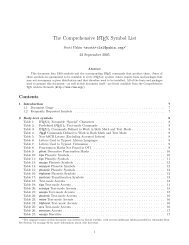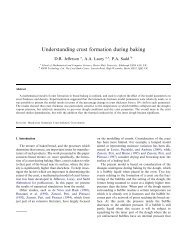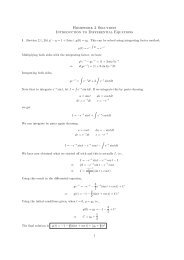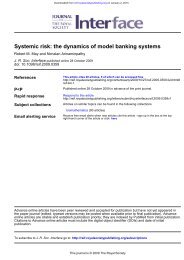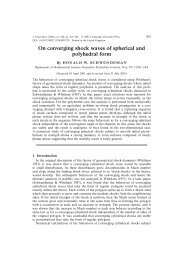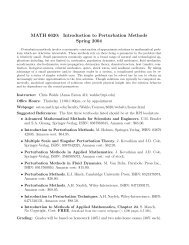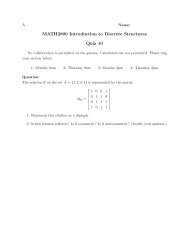ILOG CPLEX C++ API 9.0 Reference Manual
ILOG CPLEX C++ API 9.0 Reference Manual
ILOG CPLEX C++ API 9.0 Reference Manual
Create successful ePaper yourself
Turn your PDF publications into a flip-book with our unique Google optimized e-Paper software.
IloCplex<br />
This method sets the preferred branching direction for variable var to dir. This setting<br />
will cause <strong>CPLEX</strong> first to explore the branch indicated by dir after branching on<br />
variable var.<br />
public void setDirections(const IloNumVarArray var,<br />
const IloCplex::BranchDirectionArray dir)<br />
This method sets the preferred branching direction for each variable in the array var to<br />
the corresponding value in the array dir. This will cause <strong>CPLEX</strong> to first explore the<br />
branch indicated by dir[i] after branching on variable var[i].<br />
public void setFormulationBigValue(IloNum v)<br />
This method sets the large value used to set a bound on any otherwise unbounded<br />
expressions appearing in logical constraints. Such a value is sometimes referred to as<br />
Big M. By default, it is set to 1e6.<br />
The method getFormulationBigValue returns the current setting of the large<br />
value.<br />
In order to transform a logical constraint autmatically into an equivalent MIP<br />
formulation, it is sometimes necessary to set a finite upper or lower bound on an<br />
otherwise unbounded term. When such a bound does not already exist, <strong>CPLEX</strong> uses the<br />
value set by this method for that purpose. For example, consider the following<br />
disjunction (that is, an or-statement):<br />
(x == 1) || (x 2)<br />
It is necessary to have an upper bound on x. If the upper bound on x is<br />
IloInfinity, <strong>CPLEX</strong> will use the value controlled by this method in the<br />
transformed representation of logical formulations.<br />
public void setFormulationEpsValue(IloNum eps)<br />
This method sets the epsilon value that is used to model strict relations. In order to<br />
model a strict inequality such as x < b in a MIP, IloCplex uses x ≤ b - eps as a<br />
surrogate, where eps is the value controlled by this method.<br />
public void setParam(IloCplex::BoolParam parameter,<br />
IloBool value)<br />
This method sets parameter to value in the invoking algorithm. See the <strong>ILOG</strong><br />
<strong>CPLEX</strong> User's <strong>Manual</strong> for more detailed information about parameters and for<br />
examples of their use.<br />
public void setPriorities(const IloNumVarArray var,<br />
const IloNumArray pri)<br />
This method sets the priority order for all variables in the array var to the<br />
corresponding value in the array pri. During branching, integer variables with higher<br />
<strong>ILOG</strong> <strong>CPLEX</strong> <strong>C++</strong> <strong>API</strong> <strong>9.0</strong> REFERENCE M ANUAL 72



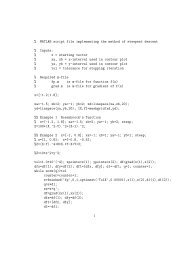

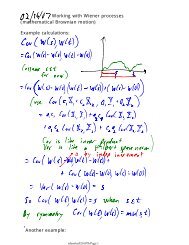

![MATH 1500 Sample Questions Exam 2 1. [3.7] A 10-ft plank is ...](https://img.yumpu.com/43861920/1/190x245/math-1500-sample-questions-exam-2-1-37-a-10-ft-plank-is-.jpg?quality=85)

